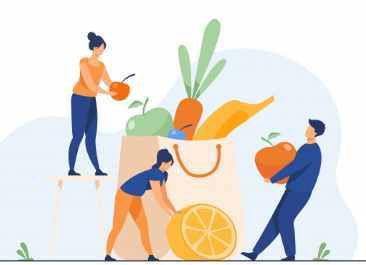Healthy Eating for Teens
As a teenager, your body is going through a lot of changes – changes that need to be supported by a healthy, balanced diet.
By eating a varied and balanced diet, you should be able to get all the energy and the important nutrients you need, such as iron, vitamin D and calcium, from the food and drink you consume, allowing your body to grow and develop properly. Eating healthily doesn’t have to mean giving up your favourite foods. It simply means eating a variety of foods and cutting down on food and drinks that are high in fat and sugar, such as sugary fizzy drinks, cakes, etc. These foods should be eaten less often and in smaller amounts. Dieting, skipping breakfast or starving yourself doesn’t work. ‘Miranda Kerr’s looks are down to her good genes, a strict diet and exercise,’ dietician Collins says. ‘Outwardly, you can look vibrant and beautiful, but inwardly, your body can be crying out for nutrition.’ Collins points to Gwyneth Paltrow, saying that in 2010 she had the early stages of osteopenia, usually seen in women after the age of 50.
Osteopenia can occur when someone cuts out food groups such as dairy, especially if it is a lifelong habit. The best diet is a varied one, according to Collins. A Mediterranean-style diet that consists of olive oil, vegetables, lean meat and a handful of nuts to snack on is a nutritious diet for people of all ages.
1. .....................................................................
Skipping meals won’t help you lose weight and is not good for you because you can miss out on important nutrients. Having breakfast will help you get some of the vitamins and minerals you need for good health.
2. .....................................................................
Fruit and vegetables are good sources of many of the vitamins and minerals your body needs during your teenage years. Aim to eat at least five portions of a variety of fruit and vegetables a day.
3. .....................................................................
Aim to drink six to eight glasses of fluids a day. Water and low-fat milk are both healthy choices. Even unsweetened fruit juice is sugary. Your combined total of drinks from fruit juice, vegetable juice and smoothies should not be more than a small glass.
4. .....................................................................
If you often feel run down, you may be low on iron. Teenage girls are especially at risk because they lose iron at that age. Try to get your iron from a variety of foods. Some good sources are red meat, breakfast cereals fortified with iron and bread.
5. .....................................................................
Vitamin D helps keep bones and teeth healthy. We get most of our vitamin D from the sun, but it is also available in some foods.
6. .....................................................................
The most recent National Diet and Nutrition study found that the calcium intake of one in six women under 24 was worryingly low. Calcium helps to build strong bones and teeth. Good sources of calcium include milk and other dairy products and leafy green vegetables.
7. .....................................................................
Diets that promise quick weight loss are often not nutritionally balanced, which means that you could miss out on important vitamins and minerals. They also tend to focus on short-term results, so you end up putting the weight back on after returning to your normal diet. The National Osteoporosis Society found that a fifth of people under 25 were cutting out or reducing dairy products in their diet, which can affect their bones.

